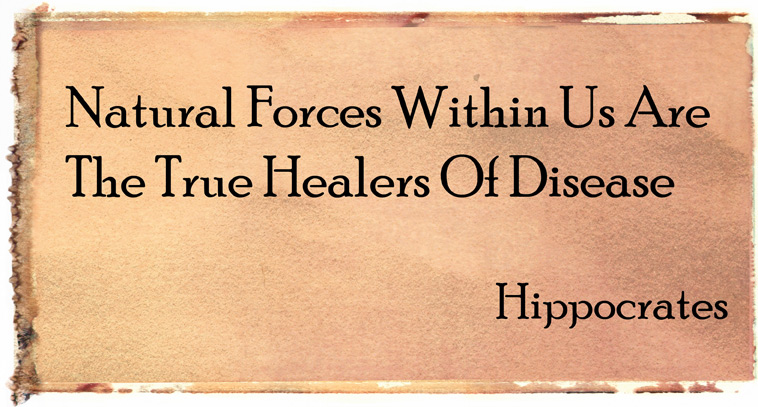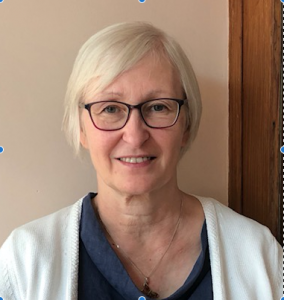Naturopathy: romantic ideal or scientific reality? - Healthy Life Essex
Home » Articles » Wellbeing » Complementary and Alternative Therapies » Naturopathy » Naturopathy: romantic ideal or scientific reality?
The healing power of nature is a fundamental principle of naturopathy(1)
 Is, therefore, naturopathy a romantic ideal or a scientific reality?
Is, therefore, naturopathy a romantic ideal or a scientific reality?
A combination of the Latin (natura) and Greek (pathy) roots, the meaning of naturopathy suggests “natural healing”. Is this term, first used in 1885 by Dr John Scheel, and later purchased by Benedict Lust in 1901, a romantic ideal or a scientific reality?
The concept of the healing power of nature originates with Hippocrates
Gathering popularity in the world of today, the concept of naturopathy, with the healing power of nature as its fundamental principle, originates with Hippocrates twenty-five centuries ago.
Hippocrates viewed health as the expression of a harmonious balance between the various components of man’s nature, the environment and ways of life, regarding nature as the “physician of the disease”. Man was part of nature and the universe; health was achieved by living in accordance with this principle.
The “vital force”, which was considered to make up the universe and flow through nature, was also believed to be important in supporting the body to heal itself. Naturopaths sought to restore the balance of the “vital force”. Harmony was fostered with proper nutrition, water treatments, rest, sunshine and fasting. Medicine, religion and science were intimately related, and man was seen as a whole – a physical, mental, emotional and spiritual being.
Might this be the ancient wisdom that is relevant for healing in today’s world?
The principles of naturopathy (2)
How do current trends in naturopathy promote health and wellbeing?
The different modalities of naturopathy are unified by principles in common.
Health is considered not simply as the absence of illness but as abundant vitality.
Identify and address the root causes of illness, and avoid simply treating the symptoms of disease.
Symptoms provide useful information about what needs to be rebalanced in the body.
Encourage the promotion of prevention of disease by assessing risk factors and hereditary susceptibility to disease to making appropriate interventions.
Support the healing power of nature (its “vital force”) by trusting the inherent ability to recover through self-correction of imbalances.
A priority is to do no harm, using the most natural, least toxic and least invasive therapies first.
Support the whole person – assess not just physical aspects of health but also other factors that influence health and wellbeing: physical, mental, emotional and spiritual aspects of life and interconnections.
Recognise the significance of biochemical, emotional and intellectual individuality for the unique nature of an individual’s responses, avoiding a generalised approach in favour of an individual approach.
Educate people with the knowledge of self-care so they are empowered to take steps towards achieving optimal health.
Natural healing practices which may be used to promote the body’s own self-healing include nutritional therapy, herbal medicine, homoeopathy, acupuncture, hydrotherapy, physical manipulation, colon hydrotherapy, fasting and exercise. (3)
The complexities of modern life for the naturopath in today’s world(4)
Lives today may be overwhelmed by a hostile environment of toxins and chemicals, stress and poor diet. Many of these aspects of modern life are beyond the control of the individual and may impact negatively on health.
Against some of these challenges of modern life, naturopathy includes a range of therapies which may be used to guide individuals towards vibrant health. A key feature of a naturopathic approach is to empower the individual to take responsibility for his or her own health.
One aspect of modern life which is likely to be highly modifiable is an individual’s diet.
Increasingly the recognition that diet and lifestyle has an impact on our health features in frequent messages about a range of diseases. Such diseases include diabetes type 2, cancer and autoimmune diseases, which are all increasing in the modern world. If diet and lifestyle contribute to the development of diseases, can diet and lifestyle changes be made to prevent or even reverse the development of some of these diseases? (See Combat Cancer with a Healthy Diet and Dementia Can be Prevented and its Symptoms Reversed)
In naturopathic nutrition, your unique interaction with food is recognised(5)
Naturopathic nutrition offers you the answers you need to address your diet and lifestyle and to support your health.
Your unique interaction with food is recognised
Food selection, preparation and eating is promoted to support healing
Whole foods are greater than the sum of their parts
You can expect a naturopathic nutrition plan to include recommendations and advice for:
Individually assessed dietary therapy
Optimal food preparation
Traditional approaches to support detoxification
Lifestyle recommendations to optimise dietary intake
Full and clear information to empower and encourage you to achieve optimal health and wellbeing
For dietary advice to support your health, book a consultation with a nutritional therapist.
A nutritional therapist takes a full case history for a detailed assessment of your individuality, to inform recommendations that are right for you.
A qualified and registered nutritional therapist has undertaken a recognised training in the theory and practice of nutritional therapy and continues to attend professional training to keep updated on current research. Many nutritional therapists have also been trained in a naturopathic approach.
You can be confident in your therapist by choosing one who is registered with BANT (British Association of Nutritional Therapists), NNA (Naturopathic Nutrition Association), ANP (Association of Naturopathic Practitioners), or CNHC (Complementary and Natural Healthcare Council).


Jane Hickey is a registered nutritional therapist. She practises in Chelmsford and Purleigh, creating individualised plans for clients to support their health and wellbeing.
Website: janehickeynutrition.com
Telephone: 07305 531583
Email: jane@janehickeynutrition.com
References:
(1) ndhealthfacts.org/wiki/History_of_Naturopathic_Medicine
(2) bastyr.edu/academics/naturopathic-medicine/about-naturopthic-medicine
(3) theanp.co.uk/What-is-Naturopathy
(4) Stephen Langley The Naturopathy Workbook (2003)
(5) nna-uk.com/about/what-is-naturopathic-nutrition
